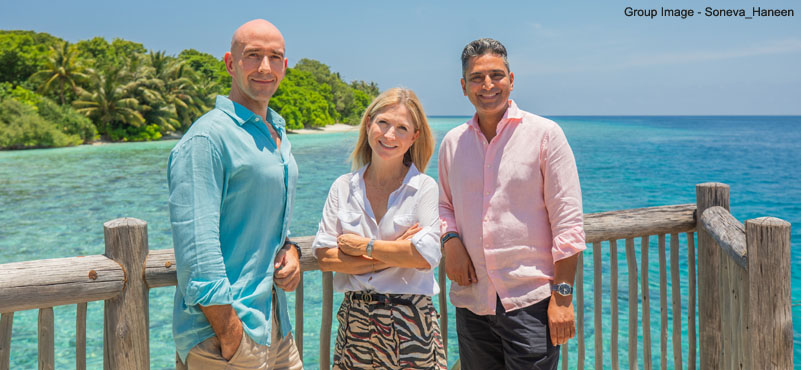Share the post "Soneva Stays Grounded in its First Principles: New Owners to Consolidate the Brand within Maldives."
Soneva Group in the Maldives is an enviable brand that the globally tuned traveller has learnt to accept as among the first to offer experiential as luxury. Over the years, it has upped the quotient, only to become even more remarkable in its experiences. It changed hands, too, with its founder demitting office, to take up new pastures. Sonu Shivdasani became a legendary name in luxury, but now a new era has dawned for the group. We catch up with Abhishek Sharma – Chief Operating Officer, globally for Soneva, understanding the group’s plans, its intent for the Indian market, and tourism trends in the Maldives. This conversation was carried between him and editor, Navin Berry.
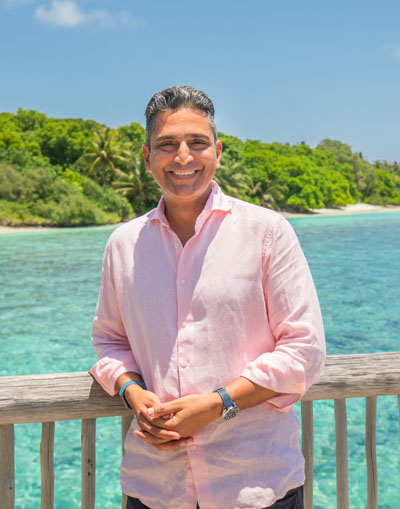
There’s so much we know about Soneva over the years. If you could start by sharing the organizational change that happened at Soneva, from the days of Sonu Shivdasani, where have you moved and what does it mean for Soneva today?
From a human perspective, Navin, essentially, we have a new team which is headquartered now in Dubai. The team is led by our new CEO, Neil Gallagher. We have a new chief commercial officer who’s just joined us from the Mandarin. Her name is Joanna Flint. She was with me in the Maldives for the last 10 days, just going through the brand and with our CEO as well.
And we have a new CFO – Chris Whitehouse. He’s also based in Dubai. So, the senior leadership team is essentially relocating to Dubai for ease of business management and compliance.
It’s become a more focused group of people who are experts in their individual verticals, and their job is to support the three resorts in the Maldives with all creative, financial, compliance, and operational input by spending as much time, as possibly they can, within the three islands that exist in the Maldives.
And who is the owner, Abhishek?
Our new partners who own minority shareholding in Soneva are KSL Capital Partners. They’ve been our partners for the last six plus years. And they have now taken a majority shareholding. They own the Soneva asset now. Sonu continues to be a minority shareholder but is not involved in the day to day of the business.
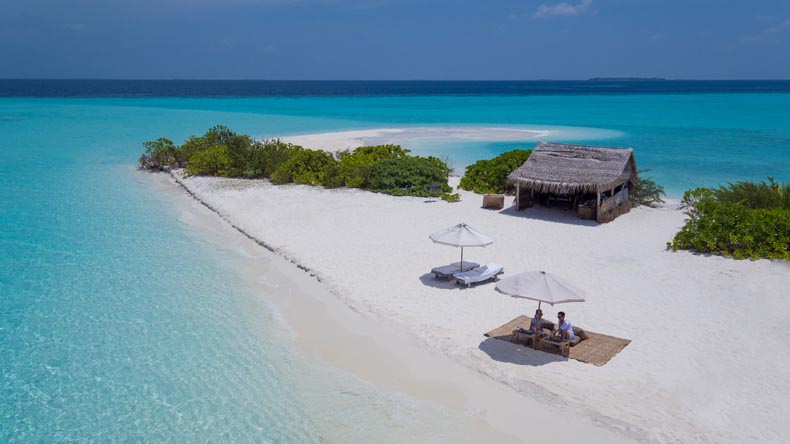
But is Sonu involved in some mentorship or any other aspect of the group?
I don’t think so. Sonu’s working on an individual concept.
When you say you moved to Dubai for ease of management, are you seeing Soneva as a brand growing beyond Maldives primarily and if so, which all territories are you looking at?
These are still early days, right? We’ve just had a change of ownership. So, at this point of time, our short to medium term goal is to consolidate our assets and leverage the unique positioning that Soneva has had in the ultra-luxury space for the many, many decades that Soneva has led the market. So, at this point of time, our intention is to consolidate these three individual resorts and build on the legacy that Soneva has created, which we are deeply respectful about – the DNA of Soneva will continue to remain exactly the same. Our intention with the new team and the new owners is to invest in critical areas of the resort which need that and to sharpen the pencil on multiple areas like guest experience and outreach of the brand.
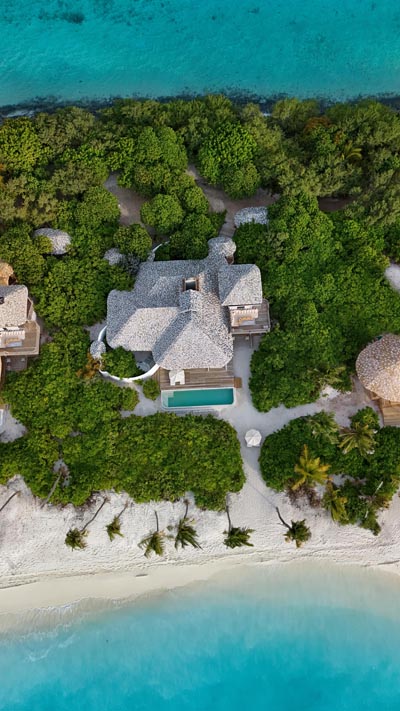
For us and for me looking at luxury in India, I think the entire ballgame has changed in the last 15 -20 years. Say 20 years ago we thought luxury was big chandeliers. Huge chandeliers, ornate furniture, furnishings, that was luxury. Probably some very expensive tableware. Today, it’s all experiential. So, at Soneva, you were already experiential, so to say, in the beginning.
How do you see that evolution impacting Soneva? Have you strengthened your experiential component? What else are you doing in terms of whatever is trending? I think Soneva and Aman Resorts were the original inventors of experiential on the international scale in our part of the world. Any evolution in the understanding of luxury as you would like to have it experienced by your customer?
It’s a very broad question and I’ll try and answer as effectively as I can. So, I think at Soneva, we have and will continue to double down on the true experience of luxury. You will agree with me that that word has become exceptionally ‘obtuse’.
People just throw around that word like you throw peanuts in a ‘lohri’ fire. The idea for us has always been to create moments and experiences that are rare. You can be the richest man in London, but can you really walk barefoot for a week? It just physically cannot happen. A lot of our guests who come from the affluent cities they live in, including Bombay, Delhi, Bangalore, they all live in these little boxes. House box, car box, office box, school box, mall box. These are little boxes. The intention at Soneva has always been to free up this space. I’m sitting in a room where all the doors have beautiful louvers on them so that the outside is always in. It’s an extension of indoors connected with the outside. I would say that that evolution is continuous that has never stopped, it will never stop.
We have, for Soneva Fushi, found a beautiful deserted natural island which we now use for our guest picnic so we take guests there. We leave them there. They have a full kit, including a phone that they can call on. They can fish. They can enjoy a nice barbecue. They can have somebody there to assist them, or they can be completely Robinson Crusoe-ed. I think the idea is to connect with yourself first and with each other, and the people that truly make your life meaningful. So that’s why we draw away all of this distraction that exists in the modern digital world. And that’s encouraged at our resorts.
A lot of our wellness-related programming at Soneva Soul, is exactly pointed in that direction. And as you know, Navin, wellness and longevity have become mainstay themes in the last four to five years, especially post -COVID. So, we’re doubling down on that.
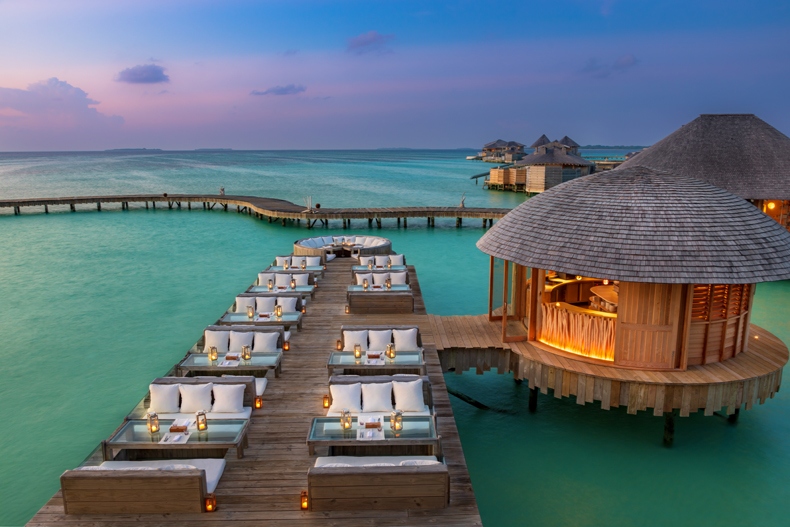
And I think our commitment is very visible when we open a brand like Soneva Secret, right? It’s a 12-plus room key resort in the western-most part of the Maldives, where for about 25 nautical miles you have no other human being in existence. And the idea of that experience is that you experience nature as raw as it used to be when the Maldives just started becoming popular.
If you landed in the Maldives recently in Male, there’s like 30,000 hotels around you, there’s boats. The Maldives that created the Maldives buzz has died 15 years ago. So Soneva’s Secret is a reflection of this idea of actually a new chapter, but actually going back in time, doubling down on what is truly rare.
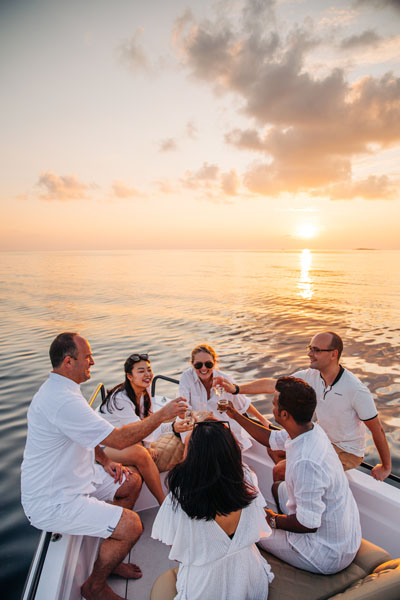
To be able to sit on the roof of your house, even in Delhi, I grew up a few of my years in New Delhi and Bombay. In the 80s, you still could sit on the roof of your nani’s house or dadi’s house, and you could see the stars, your nana could point out and tell you stories, but it’s no longer possible. There’s so much light pollution, right? But when you are at Soneva Secret, or Soneva Jani for that matter, it’s a completely dark sky.
In this entire act of discovering yourself, so to say, for the customer, for the client who’s there with you, how are you distinguishing yourself with your peers? Everybody is talking about luxury. But let’s say some of the big flashy brands in the Maldives are also saying, come and experience. We are giving you experiential.
I think my answer to your question is going to be a little bit emotional. So please bear with my response. We do not have guests who are collecting experiences. We have guests who are immersed and are changed by the experience they have.
I would say that’s the first difference between us and any of the other shiny hotel brands that are touting this idea of luxury. They can buy everything they want to buy as an experience. But what they’re looking for is the raw human connection.
So, for example, as a part of our culture, a real example that happened a couple of months ago is when an exceptionally rich family checked in. They’re from the European Union. They had a second child quite late in their life. The second child was brought up in this very, very big city, from house to car, going to school. And has never really been on a bicycle before, right? And a small bicycle was provided to this child, but the child and the bicycle are alien to each other.
So, the gardener who cleans their garden, who doesn’t speak the language but authentically connected with the mother, to say that I have a young grandchild, who I’ve just taught how to ride a bike. Maybe I can teach your child, how to ride a bike. In doing that for the next 7 to 10 days that the guest stayed with us, we have changed their life.
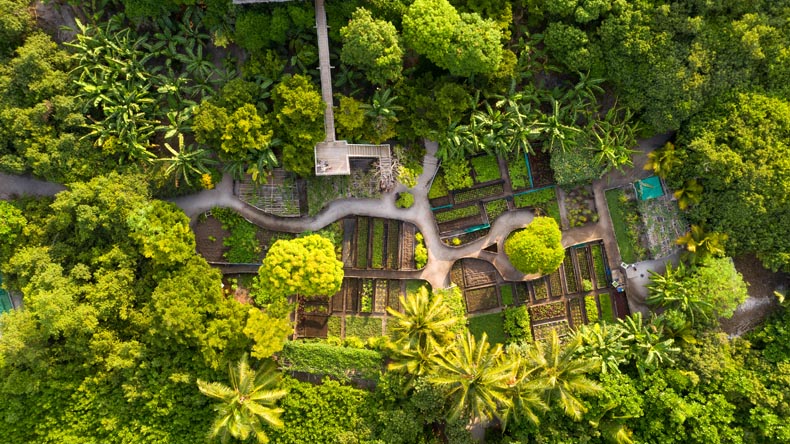
When you talk about such human connect, emotional connect, where are you seeing AI coming in and disturbing this equilibrium?
I guess like any other tool in the world, it depends how you use AI. Hotels do have a lot of administrative work. You can imagine that you’re typing out itineraries, typing out emails, drafting out emails. So, we do use AI to create a good template basis for us, which we can then add the personalization to. That’s number one. Number two is, we are across the matrix of our food and beverage offering. We have created some AI chatbots that are allowing us to create flavor matrixes, which a classically trained chef may not be able to accept. I mean, for example, if I tell a European chef that you make sweet pancakes and serve ‘nimbu ka achar’, he’ll probably shoot me in the eyeball, right? But I know that flavor combination works exceptionally well.
So, we are using AI for many such bold steps that we are doing. We’re also using AI a little bit more to refine the quality of our guest data. Hotels collect a lot of guest data, as you know, and it’s difficult for a human analyst to see through everything, especially for a brand like Soneva. Such vast variables. So, it’s helping us build a better persona for the guests, that we want to look at, and service at Soneva. And while once we have them, it’s helping us keep their data clean and clear and helping us point out where we can reach out to them, whether it’s creating memories.
For example, a few days ago, we sent a note out to one of our guests who stayed last year on an anniversary with us. While it was an AI prompted action, the email went out from the butler and the restaurant team that looked after them on their last anniversary. We’re leveraging the memory strength and the knowledge strength of AI which the human being cannot have, because of the limited capacity of our brain, and then applying the heart of a human being to that, and then sending out that communication.
In the Maldives, how is the market developing as a destination per se?
The Maldives has seen an incredible surge of luxury hotels in the last 3-4 years. And the next four years until 2030, we’ll continue to see that. So, there is a Mandarin coming in, there’s a Rosewood coming in, there’s an Aman that’s coming in, there’s a Bulgari that’s opening, there’s a Baccarat that’s opening.
So, the top end luxury space will continue to get a little bit crowded. I think the infrastructure is trying to now cope up and sort of advance itself so that airlift as well as receiving capacity can be increased. There’s a new airport that’s opening in October this year, which is a testament to that commitment from our governing bodies as well. So, a lot of these things are coming together. I guess the world is moving at an astonishing pace. So, verticals that are important today may not remain important tomorrow.
But there are some, I feel, timeless verticals that will continue to shine through and will allow people to pick the hotel they want to pick. Because if you’re new to the Maldives, picking one hotel versus the other is the hardest task that you can do.
How are the numbers doing from India?
India has always been a strong market for Soneva and continues to be that. With the appointment of our new Chief Commercial Officer, we are going to strengthen this. I spoke to a few of our travel trade partners who are aware of who she is. She has a fantastic reputation from her time at Mandarin and India doesn’t have a Mandarin, as you know, and is trying to open one for a few years. So, there’s a lot that’s happened. So, she comes with great equity from her previous brand and herself. And I’m certain that the connection with India will just continue to build stronger and stronger as we go into the next coming couple of months.
Have you now reached double figures in terms of your Indian occupancy versus overall?
We’ve had that for a fair amount of time.
Because I thought it was always like single digits.
I think post -COVID, India and a lot of, I mean, I would say there are 15 families in India, without naming any of them, who have been now, who come at least twice a year, if not more. We’re doing well in India. Could we do more? Absolutely.
In terms of your channel partners in India, are these agents? How are you getting your business from India?
I think we’re very well positioned with Soneva. So, the public perception in India has changed, and especially post -COVID, where we were very aggressive in the market. And India almost became number two for arrivals because there were other nationalities still not going into Maldives. But for India, only the Maldives was available.
So I think we really were in a very good position and the way the brand matrix has worked, the positioning that Soneva has always driven and the brand intent has been so strong as a very extraordinary, unusual kind of organization, which means it’s an organization with purpose, all the experiences, for example, the product was even designed for it. For example, when Abhishek spoke about watching the stars, you actually have villas where the roof opens up, you’re lying in bed, and you’re watching the stars. I mean, that’s a brand intent to say, how does the brand define luxury by peace, time, space, rare experiences. And I think that has now been well established. The families that from India travel into Soneva booked two ways.
Initially, they would have booked through your channel partners, like mostly travel agents who deal with luxury travel, but over time have started to exercise their personal choice and they are now making bookings directly. We have so many people and you know the celebrities, Bollywood stars, all ringing us up for Soneva because in their mind it is very distinctly positioned, whereas every other luxury hotel is maybe, I wouldn’t say cookie cutter, but the experiences are, like you said, opulent, indulgent and stuff like that. But I think Soneva really is for living your life in its most natural state.
Tell me, Abhishek, in terms of incoming traffic to Maldives, are you seeing any diversity or the stream of reasons to travel getting more diverse? For instance, MIC is a huge area, small off -sites are a big area for the corporate sector. So, are you still getting only families, people wanting to experience luxury in the Maldives or is it going beyond into other verticals?
Well, I guess to be able to say sort of market mix for the Maldives is quite a hard question because it has these hotels from the three-star level all the way up, but I can speak definitely for sort of the luxury-scape especially for Soneva, that in addition to the groups that you mentioned we are definitely seeing wellness retreats. In fact, in the next few days, Soneva Fushi will host a festival called the Soul Festival, which is a coming together of some of the world’s best-known wellness and longevity experts. So that’s definitely number one. We are seeing and last year was indicative of a little bit more sort of YPO, EO and social gathering events. So, where there’s a family that’s paying for everyone to come on board. And from that, we’ve had FITs come out of that and come back and stay with us. So, there is diversification that’s happened, Navin.
One most obvious question, Soneva’s plans for the Indian market. I think we are ripe now to have a Soneva brand.
I think India has been ripe for having a Soneva brand for a long time. I don’t think the question is if or why. I think the question is when. And like I said, with our new owners coming in, they are an exceptionally international business. They invest very, very big time into travel and leisure sector. That’s their specialty. I think it is definitely something we would like to consider, but for the moment, for the medium to short term, the idea is to consolidate the Maldives asset before we consider going anywhere else. We continue to be owner and operator of our assets. So, we don’t have any red tape or bureaucracy like with a lot of other brands that manage other people’s assets.
Have you identified any model for the Indian market if and when it happens? Like would you be preferring an owner status or an asset light?
I don’t think we’ve gone down that rabbit hole yet, Navin. As much as possible, and that’s, I think, a reflection of our previous owners and our new owners, a brand as unique as Soneva deserves a very special group of people, which is why it has continued to be owner and operator rather than owner -driven or operator-driven. So, at this point of time, this is the model we believe is the right model wherever, whatever we operate.
I think a more in-depth study is necessary for very unique market getaways like India, which have a different reason to arrive on a holiday compared to the Maldives, for example, before any structured setup can be created. So, it’s going to take us some time to get our head around it, but we’re not in any rush.
I would think that India as a destination could do with having a Soneva coming as well. And in recent years as you probably know better than I do that much has changed in Indian hospitality. Some very big cash rich or land rich owners have come into the market and joined hands with companies like Marriott and others. So, we have a Marriott Marquis coming at Delhi airport which I think should be ready by next year, which is actually driven by two very large real estate players.
So, it’s always nice to have a Soneva and as you know that India is probably 30-40 countries rolled into one. So just not one Soneva but probably a couple of Sonevas’, one in the hills, one by the beach, one in a wildlife sanctuary.
You said you’ve been to Delhi when you were young, so your experience of Delhi and perhaps the hospitality scene, do you come to Delhi often even now?
I was in Delhi in March this year. My grandparents live in Delhi. My parents live in Ambala. They’ve lived there a long time. So, my time in Delhi has been a long association. I’ve been to senior school in Delhi. I finished my schooling in Delhi. I went to the Air Force Golden Jubilee. And I did my post-graduation in Delhi at the Oberoi School. And in fact, Navin, if you’re familiar, the Oberoi New Delhi has a restaurant called 360, which is now in its second incarnation, that I opened. The association with Delhi goes back many, many years.
Abhishek Sharma is a Delhi boy, grew up in the city. Raised in a military family and lot of his childhood was spent in many parts of India due to his fathers’ military career. This travel and relocation helped him gain a deep respect and understanding of cultural uniqueness and idiosyncrasies.
He graduated from Institute of Hotel Management, Bengaluru in 2000 and went straight to The Oberoi Centre of Leaning and Development; trained at The Oberoi Mumbai, Trident Jaipur, Oberoi Grand Kolkata as part of his 2- year program and then picked F&B as his area of specialisation. Upon graduation, Abhishek joined Oberoi Hotel Mumbai under the legendary hotelier, Sanjiv Malhotra, who had an incredible impact on Abhishek’s outlook towards luxury, guest service and host engagement. To his credit, goes the setting of threesixty0, a first-of-its-kind in India with a live sushi bar, Yakitori grill, Pizza oven and a private wine cellar, Enoteca. The restaurant took its time to find its feet due to the idea of 7 live kitchens under one roof, but once it did, it became the buzz of the city. Abhishek credits his time at The Oberoi Group among his most cherished, having grounded him and created the baseline for future success.

